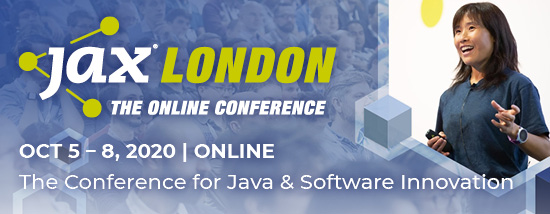A research study by The National Center for Women & Information Technology showed that “gender diversity has specific benefits in technology settings,” which could explain why tech companies have started to invest in initiatives that aim to boost the number of female applicants, recruit them in a more effective way, retain them for longer, and give them the opportunity to advance. But is it enough?
Four years ago, we launched a diversity series aimed at bringing the most inspirational and powerful women in the tech scene to your attention. Today, we’d like you to meet Susanna Lawson, CEO and Co-founder of OneFile.
Today’s Woman in Tech: Susanna Lawson, CEO and Co-founder of OneFile
 Susanna Lawson, CEO and Co-Founder of OneFile has grown OneFile from a start-up of 2 people from her spare bedroom in Manchester to a multi-million-pound company with over 85 employees. In 2017 Susanna was named Forward Ladies/HSBC Business Woman of the Year, as well as receiving the 2019 Outstanding Achievement EVAS award, and 2020 Director of the Year Equality, Diversity & Inclusion. Susanna is on the advisory panel of BAME Apprenticeship Alliance, has sat on the Mayor of Greater Manchester’s Business Advisory Panel and mentors many SME owners.
Susanna Lawson, CEO and Co-Founder of OneFile has grown OneFile from a start-up of 2 people from her spare bedroom in Manchester to a multi-million-pound company with over 85 employees. In 2017 Susanna was named Forward Ladies/HSBC Business Woman of the Year, as well as receiving the 2019 Outstanding Achievement EVAS award, and 2020 Director of the Year Equality, Diversity & Inclusion. Susanna is on the advisory panel of BAME Apprenticeship Alliance, has sat on the Mayor of Greater Manchester’s Business Advisory Panel and mentors many SME owners.
When did you become interested in technology?
I didn’t come from a tech background, but as I progressed through my career in the education sector, I started to witness the value of technology and how it could help address specific challenges I was facing.
How did you end up in your career path? What obstacles did you have to overcome?
Following my graduation from university, I started working with adults with learning difficulties. Despite having a psychology degree, I had to complete an NVQ in care to prove I had the practical skills required for the role. This was where my involvement in the vocational training sector began.
After completing my NVQ qualifications, I moved up the ranks as an NVQ assessor, before becoming an Internal Verifier for the NHS and was seconded to the learning and development department for a year. I left the NHS in 2002, when I went to work for an independent training provider delivering apprenticeships. There I became the National Contracts Manager to over 1,000 apprentices based across the UK. Throughout my journey from learner, assessor, IQA to manager, I witnessed huge challenges across the sector first-hand, and decided to build a solution: OneFile.
By developing the latest innovations in paperless technology, OneFile has transformed the entire process and enables all learners to complete their work online. This has generated unprecedented efficiencies across the entire sector. FE colleges have reported savings in paper and printing of 84%, returns on investment of over 1,000% and saved over 360 million miles in travel overall – that’s more than 14,000 journeys around the world.
Did you receive support from your family and friends?
I worked with my partner Chris to develop OneFile. The company has grown from an idea in a Manchester back bedroom to one of the leading eportfolio software in the education sector, with over 80 employees. This would have not been possible without the continuous support from our close family and friends.
Do you have a role model?
Outside of the technology sector, one of my role models is New Zealand’s Prime Minister, Jacinda Adern. A great example of a leader who leads with compassion.
Did someone ever try to stop you from learning and advancing in your professional life?
No, I have been incredibly fortunate that I have always had supportive managers that have done nothing but encourage me to continue my learning and development, even if it meant I might ultimately leave the organisation.
I feel very proud and thankful to have built and scaled a successful business – one that has received a number of awards, including the Queen’s Award for Innovation.
A day in Susanna’s life
I am the current CEO and Co-Founder of OneFile. My primary responsibilities include making major corporate decisions, managing the overall operations and resources of the company. No day is ever the same. Some days consist largely of networking and connecting with industry leaders to build relationships and help organisations prepare for upcoming legislative changes. Other days, I make my rounds to various departments in the virtual office, as it gives me the opportunity to catch up and develop my team.
What are you most proud of in your career?
I feel very proud and thankful to have built and scaled a successful business – one that has received a number of awards, including the Queen’s Award for Innovation. This award is considered the ‘mother of all awards’ and is one of the most prestigious accolades for UK businesses. It was a surreal experience to receive the award in person at Buckingham Palace and meet Her Majesty The Queen.
Why aren’t there more women in tech?
There aren’t enough women in tech, as the education system fails to make STEM subjects attractive to girls and keep them engaged beyond GCSE level. According to PriceWaterhouseCoopers (PwC) ‘Female in Tech report ’, females aren’t considering technology careers as they aren’t given enough information on what working in the sector involves and also because no one is putting it forward as an option to them. I have heard firsthand of girls in school being put off STEM subjects by teachers and family members. Until the education system is reformed, the representation of females in the technology will continue to remain low.
Could you name a few challenges (or obstacles) women in tech face?
A huge challenge is a shortage of role models and mentors for girls who want to pursue a career in technology. Some girls may see their parents as role models, but for the majority, these examples are found outside of the family. But who can girls look up to in 2021? The likes of Facebook’s Chief Operating Officer Cheryl Sandberg or IBM’s CEO Ginni Rometty spring to mind, but even these women, are the lucky exception. In fact, recent reports show women hold 26.5 % of executive positions in S&P 500 companies – a percentage many tech companies equal, but one that is still far from parity.
Many women in tech also face another challenge – motherhood. Even if a woman manages to return from maternity leave early, she’s still set to lose about 4% of hourly earnings for each child. Moreover, according to internal research conducted by OneFile and Successful Mums in 2018, 71% of returning mothers felt employers could have done more to support them. Whilst many schemes, like Tech Returners, are in place to help women return to employment, more needs to be done to ensure motherhood doesn’t contribute to the wage gap or prevent women from moving up the leadership chain.
Until the education system is reformed, the representation of females in the technology will continue to remain low.
The discussion about diversity is gaining momentum. How long will it take to see results from the current discussion?
The representation of females in the technology sector, unfortunately, still has a long way to go before women are no longer considered the minority in tech. Unfortunately, until the talent pipeline massively increases women will still be the minority. As a tech company we challenge our recruiters and HR team to provide a diverse shortlist, but it is incredibly difficult when there are so few women in the sector. Women need to be able to see tech as a viable, attractive option for them and for some walking into an office full of male developers is not the environment they would necessarily choose.
What advice (and tips) would you give to women who want a tech career? What should they know about this industry?
Technology is crying out for diversity. Having more women in tech will ensure that women’s views are taken into consideration during the planning and designing of products. Without this, technology solutions present a risk of being developed for only half of the population. There have been so many instances where technologies like Artificial Intelligence and biometrics have misidentified women and failed to recognise instructions from a woman’s voice. A great book ‘Invisible Women’ by Caroline Criado-Perez provides many more examples of this– some of which are life-threatening. Diversity in any aspect of life is important, but by getting into the technology field, you can make the difference for the masses.
More Women in Tech:
- Women in Tech: Richa Dhandhania, Head of Analytics, Raisin DS
- Women in Tech: Miriam Bressan, Manager Solution Engineering, Global Accounts in CEMEA and SEMEA at VMware Tanzu
- Women in Tech: Abigail Ramlogan, Marketing product evangelist at NetBrain
- Women in Tech: Anna Stoilova, Co-founder & Chief Product Officer at TIKI
- Women in Tech: Priscila Oliveira, software engineer at Sentry
For even more Women in Tech, click here
The post Women in Tech: “Technology is crying out for diversity.” appeared first on JAXenter.
Source : JAXenter






















